
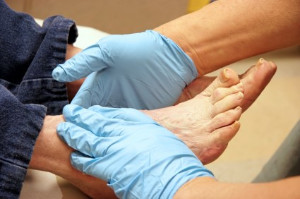 While the relationship between diabetes and the feet may not seem important to most people, it is of the utmost concern. Diabetics generally suffer from poor blood circulation and neuropathy, or nerve loss. Due to the loss of sensation associated with neuropathy, diabetics may not realize when they have a foot ulcer. The wound may also become infected due to the poor blood circulation and improper healing. Amputations are not uncommon because of diabetes, and awareness of this issue is vital to those who have the condition. Diabetics should inspect their feet daily for wounds, splinters, or any abnormalities. If you have diabetes, avoid going barefoot and wear well-cushioned footwear that provides optimal foot support and wiggle room for the toes. Finally, it is highly recommended to see a podiatrist for a foot examination at least once a year.
While the relationship between diabetes and the feet may not seem important to most people, it is of the utmost concern. Diabetics generally suffer from poor blood circulation and neuropathy, or nerve loss. Due to the loss of sensation associated with neuropathy, diabetics may not realize when they have a foot ulcer. The wound may also become infected due to the poor blood circulation and improper healing. Amputations are not uncommon because of diabetes, and awareness of this issue is vital to those who have the condition. Diabetics should inspect their feet daily for wounds, splinters, or any abnormalities. If you have diabetes, avoid going barefoot and wear well-cushioned footwear that provides optimal foot support and wiggle room for the toes. Finally, it is highly recommended to see a podiatrist for a foot examination at least once a year.
Diabetic foot care is important in preventing foot ailments such as ulcers. If you are suffering from diabetes or have any other concerns about your feet, contact Dr. Steven Shlonsky from Louisville, Kentucky. Dr. Shlonsky can provide the care you need to keep you pain-free and on your feet.
Diabetic Foot Care
Diabetes affects millions of people every year. The condition can damage blood vessels in many parts of the body, especially the feet. Because of this, taking care of your feet is essential if you have diabetes, and having a podiatrist help monitor your foot health is highly recommended.
The Importance of Caring for Your Feet
Patients with diabetes should have their doctor monitor their blood levels, as blood sugar levels play such a huge role in diabetic care. Monitoring these levels on a regular basis is highly advised.
It is always best to inform your healthcare professional of any concerns you may have regarding your feet, especially for diabetic patients. Early treatment and routine foot examinations are keys to maintaining proper health, especially because severe complications can arise if proper treatment is not applied.
If you have any questions please feel free to contact our office located in Louisville, KY . We offer the newest diagnostic and treatment technologies for all your foot and ankle needs.
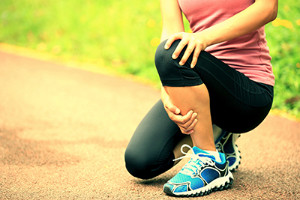 While running has many positive health benefits associated with it, it's not uncommon for runners to get hurt from the activity. Thankfully, there are several easy actions one can take to prevent potential injury. While it’s important to stretch before you run, not many people realize that stretching after a run is important as well. This prevents the muscles from shortening and tightening up. Running on natural surfaces can also be easier on the joints. Alternatively, starting on a treadmill or sidewalk isn’t bad. Take it slow the first time you run; pushing yourself too hard can lead to injury. Finally, a good pair of shoes that aren’t too cushioned and that are well-fitted can also help prevent foot pain. Running injuries always have the potential to occur, but following these steps can help significantly in preventing them. Just remember to consult with a podiatrist first about running and whether it is appropriate for you.
While running has many positive health benefits associated with it, it's not uncommon for runners to get hurt from the activity. Thankfully, there are several easy actions one can take to prevent potential injury. While it’s important to stretch before you run, not many people realize that stretching after a run is important as well. This prevents the muscles from shortening and tightening up. Running on natural surfaces can also be easier on the joints. Alternatively, starting on a treadmill or sidewalk isn’t bad. Take it slow the first time you run; pushing yourself too hard can lead to injury. Finally, a good pair of shoes that aren’t too cushioned and that are well-fitted can also help prevent foot pain. Running injuries always have the potential to occur, but following these steps can help significantly in preventing them. Just remember to consult with a podiatrist first about running and whether it is appropriate for you.
Exercising your feet regularly with the proper foot wear is a great way to prevent injuries. If you have any concerns about your feet, contact Dr. Steven Shlonsky of Louisville, Kentucky. Dr. Shlonsky will treat your foot and ankle needs.
How to Prevent Running Injuries
Many common running injuries are caused by overuse and overtraining. When the back of the kneecap starts wearing out and starts causing pain in your knee, this is commonly referred to as runner’s knee. Runner’s knee is a decrease in strength in your quadriceps and can occur if you’re not wearing properly fitted or supporting shoes. To prevent runner’s knee, focusing on hip strengthening is a good idea, as well as strengthening your quads to keep the kneecaps aligned.
What Are Some Causes of Running Injuries?
- One cause of a common running injury is called iliotibial band syndrome.
- Plantar fasciitis is also another common injury.
- Stress fractures can occur from overtraining, lack of calcium, or even your running style.
Best Ways to Prevent Running Injuries
- Wear footwear that fits properly and suits your running needs.
- Running shoes are the only protective gear that runners have to safeguard them from injury.
- Make a training schedule. Adding strengthening exercises as well as regular stretching can help keep you strong and limber and can lessen the possibility of injuries.
- Stretching keeps muscles limber; this will help you gain better flexibility.
If you have any questions please feel free to contact our office located in Louisville, KY . We offer the newest diagnostic and treatment technologies for all your foot and ankle needs.
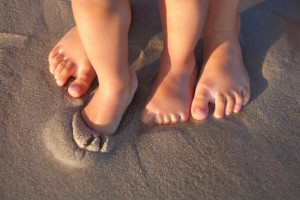 While buying shoes for children can be tough, it is important. Children’s feet are still developing and growing, and their shoes have to reflect this. It’s a good idea to measure a child’s foot before buying shoes. When they try on the shoe, check to see if they can wiggle their toes around. If they can’t, look for shoes that are either longer or wider. Even after buying a pair of shoes, it is recommended to keep measuring them every few months to see if they still fit. Children’s feet grow quickly, and their shoes can be subject to more wear than those of adults. Consequently, replacing shoes every few months may not be uncommon.
While buying shoes for children can be tough, it is important. Children’s feet are still developing and growing, and their shoes have to reflect this. It’s a good idea to measure a child’s foot before buying shoes. When they try on the shoe, check to see if they can wiggle their toes around. If they can’t, look for shoes that are either longer or wider. Even after buying a pair of shoes, it is recommended to keep measuring them every few months to see if they still fit. Children’s feet grow quickly, and their shoes can be subject to more wear than those of adults. Consequently, replacing shoes every few months may not be uncommon.
Making sure that your children maintain good foot health is very important as they grow. If you have any questions, contact Dr. Steven Shlonsky of Louisville, Kentucky. Dr. Shlonsky can provide the care you need to keep you pain-free and on your feet.
Keeping Children's Feet Healthy
Having healthy feet during childhood can help prevent medical problems later in life, namely in the back and legs. As children grow, their feet require different types of care. Here are some things to consider...
Although babies do not walk yet, it is still very important to take care of their feet.
Avoid putting tight shoes or socks on his or her feet.
Allow the baby to stretch and kick his or her feet to feel comfortable.
As a toddler, kids are now on the move and begin to develop differently. At this age, toddlers are getting a feel for walking, so don’t be alarmed if your toddler is unsteady or ‘walks funny’.
As your child gets older, it is important to teach them how to take care of their feet.
Show them proper hygiene to prevent infections such as fungus.
Be watchful for any pain or injury.
Have all injuries checked by a doctor as soon as possible.
Comfortable, protective shoes should always be worn, especially at play.
If you have any questions please feel free to contact our office located in Louisville, KY . We offer the newest diagnostic and treatment technologies for all your foot and ankle needs.
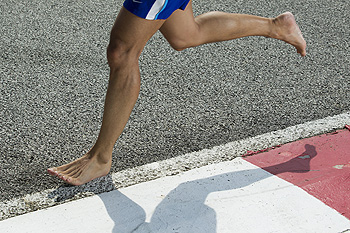 A study has found that running barefoot reduces stresses on your feet. Utilizing high-speed video and special scales, researchers found that runners in shoes and barefoot runners land on different parts of the foot. Barefoot runners land towards the front of the foot while runners with shoes land on their heels. Landing on the front of the foot produces very little stress compared to landing on the heel. One evolutionary biologist was unsurprised given that humans have evolved to not need shoes. However, it will likely take some time for most people to toughen up the bottoms of their feet to be comfortable running barefoot.
A study has found that running barefoot reduces stresses on your feet. Utilizing high-speed video and special scales, researchers found that runners in shoes and barefoot runners land on different parts of the foot. Barefoot runners land towards the front of the foot while runners with shoes land on their heels. Landing on the front of the foot produces very little stress compared to landing on the heel. One evolutionary biologist was unsurprised given that humans have evolved to not need shoes. However, it will likely take some time for most people to toughen up the bottoms of their feet to be comfortable running barefoot.
Barefoot running has its own share of benefits and disadvantages. If you have any concerns about your feet or ankles, contact Dr. Steven Shlonsky from Louisville, Kentucky. Dr. Shlonsky will treat your foot and ankle needs.
Barefoot Running
The Impact of Barefoot Running
The Advantages of Barefoot Running
The Drawbacks of Barefoot Running
So, what can runners do to make barefoot running safe? It’s best to make a slow transition from running shoes to barefoot running. Once the feet begin to adjust, try walking, then jogging and gradually increasing the distance. Minimalist running shoes may also be an option.
If you have any questions please feel free to contact one of our office located in Louisville, KY . We offer the newest diagnostic and treatment technologies for all your foot and ankle needs.
 Gout is an inflammatory condition that forms as a result of excess uric acid in the blood. Studies have shown that drinks that are high in sugar have resulted in a heightened risk of gout in men. Approximately 1 in 14 men and 1 in 35 women have the condition, and the big toe is the most common joint to be affected by it. Experts believe that cases of gout have risen in the past twenty years because more people are drinking soda and other sugary drinks than ever before. If you are worried about developing gout try to avoid things like seafood, which is typically high in purines.
Gout is an inflammatory condition that forms as a result of excess uric acid in the blood. Studies have shown that drinks that are high in sugar have resulted in a heightened risk of gout in men. Approximately 1 in 14 men and 1 in 35 women have the condition, and the big toe is the most common joint to be affected by it. Experts believe that cases of gout have risen in the past twenty years because more people are drinking soda and other sugary drinks than ever before. If you are worried about developing gout try to avoid things like seafood, which is typically high in purines.
Gout is a foot condition that requires certain treatment and care. If you are seeking treatment, contact Dr. Steven Shlonsky from Louisville, Kentucky. Dr. Shlonsky will treat your foot and ankle needs.
What Is Gout?
Gout is a type of arthritis caused by a buildup of uric acid in the bloodstream. It often develops in the foot, especially the big toe area, although it can manifest in other parts of the body as well. Gout can make walking and standing very painful and is especially common in diabetics and the obese.
People typically get gout because of a poor diet. Genetic predisposition is also a factor. The children of parents who have had gout frequently have a chance of developing it themselves.
Gout can easily be identified by redness and inflammation of the big toe and the surrounding areas of the foot. Other symptoms include extreme fatigue, joint pain, and running high fevers. Sometimes corticosteroid drugs can be prescribed to treat gout, but the best way to combat this disease is to get more exercise and eat a better diet.
If you have any questions please feel free to contact our office located in Louisville, KY . We offer the newest diagnostic and treatment technologies for all your foot and ankle needs.
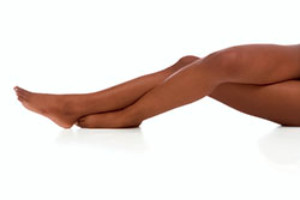 If you want to start taking care of your feet, the first step is to make sure you are wearing shoes that fit you properly. Wearing improper footwear can cause a lot of damage to your feet, and leave you in a lot of pain. If you are experiencing pain in your feet, you should be careful not to ignore it. A common source of foot pain is plantar fasciitis, but this condition can be avoided by stretching your feet and avoiding standing for long periods of time. Another tip you should follow if you want healthy feet is to get routine pedicures. Not only do pedicures help your feet feel more relaxed, but they also help them stay strong and healthy.
If you want to start taking care of your feet, the first step is to make sure you are wearing shoes that fit you properly. Wearing improper footwear can cause a lot of damage to your feet, and leave you in a lot of pain. If you are experiencing pain in your feet, you should be careful not to ignore it. A common source of foot pain is plantar fasciitis, but this condition can be avoided by stretching your feet and avoiding standing for long periods of time. Another tip you should follow if you want healthy feet is to get routine pedicures. Not only do pedicures help your feet feel more relaxed, but they also help them stay strong and healthy.
Everyday foot care is very important to prevent infection and other foot ailments. If you need your feet checked, contact Dr. Steven Shlonsky from Louisville, Kentucky. Dr. Shlonsky can provide the care you need to keep you pain-free and on your feet.
Everyday Foot Care
Often, people take care of their bodies, face and hair more so than they do for their feet. But the feet are a very important aspect of our bodies, and one that we should pay more attention to. Without our feet, we would not be able to perform most daily tasks.
It is best to check your feet regularly to make sure there are no new bruises or cuts that you may not have noticed before. For dry feet, moisturizer can easily be a remedy and can be applied as often as necessary to the affected areas. Wearing shoes that fit well can also help you maintain good foot health, as well as making it easier to walk and do daily activities without the stress or pain of ill-fitting shoes, high heels, or even flip flops. Wearing clean socks with closed shoes is important to ensure that sweat and bacteria do not accumulate within the shoe. Clean socks help to prevent Athlete’s foot, fungi problems, bad odors, and can absorb sweat.
If you have any questions please feel free to contact our office located in Louisville, KY . We offer the newest diagnostic and treatment technologies for all your foot and ankle needs.
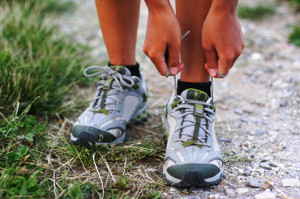 You should always make sure you are wearing proper footwear for whichever activity you are about to engage in. Hiker Marci Hansen recalls her experience going hiking with a friend: “I would step on a wet root and it was not even a thing, and she would really slip and fall.” She explains that the difference between her friend and herself is that she came prepared with the right shoes required to go hiking. The cause of her friend’s injuries was the fact that she wore shoes that were not made to endure the wet and uneven surfaces. If you are planning on going hiking, tread is one of the most important things you should look for when shoe shopping. Shoes that are sturdy enough to go hiking will help protect you from injuries that can easily be avoided.
You should always make sure you are wearing proper footwear for whichever activity you are about to engage in. Hiker Marci Hansen recalls her experience going hiking with a friend: “I would step on a wet root and it was not even a thing, and she would really slip and fall.” She explains that the difference between her friend and herself is that she came prepared with the right shoes required to go hiking. The cause of her friend’s injuries was the fact that she wore shoes that were not made to endure the wet and uneven surfaces. If you are planning on going hiking, tread is one of the most important things you should look for when shoe shopping. Shoes that are sturdy enough to go hiking will help protect you from injuries that can easily be avoided.
Exercising your feet regularly with the proper foot wear is a great way to prevent injuries. If you have any concerns about your feet, contact Dr. Steven Shlonsky of Louisville, Kentucky. Dr. Shlonsky will treat your foot and ankle needs.
How to Prevent Running Injuries
Many common running injuries are caused by overuse and overtraining. When the back of the kneecap starts wearing out and starts causing pain in your knee, this is commonly referred to as runner’s knee. Runner’s knee is a decrease in strength in your quadriceps and can occur if you’re not wearing properly fitted or supporting shoes. To prevent runner’s knee, focusing on hip strengthening is a good idea, as well as strengthening your quads to keep the kneecaps aligned.
What Are Some Causes of Running Injuries?
- One cause of a common running injury is called iliotibial band syndrome.
- Plantar fasciitis is also another common injury.
- Stress fractures can occur from overtraining, lack of calcium, or even your running style.
Best Ways to Prevent Running Injuries
- Wear footwear that fits properly and suits your running needs.
- Running shoes are the only protective gear that runners have to safeguard them from injury.
- Make a training schedule. Adding strengthening exercises as well as regular stretching can help keep you strong and limber and can lessen the possibility of injuries.
- Stretching keeps muscles limber; this will help you gain better flexibility.
If you have any questions please feel free to contact our office located in Louisville, KY . We offer the newest diagnostic and treatment technologies for all your foot and ankle needs.
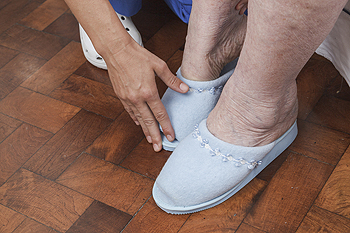 Diabetic foot refers to the set of diseases that may affect the feet as a result of diabetes mellitus. While also having diabetes, a person may develop diabetic foot by wearing improper footwear, smoking tobacco, having a pre-existing foot infection, or chronic nerve damage. According to Mayo Clinic, diabetic foot may decrease one’s ability to feel a variety of sensations. Some of these feelings include the ability to sense pain, temperature and cramps. A person with diabetic foot may also have a loss of balance and coordination, as well as serious podiatric issues such as ulcers and infections.
Diabetic foot refers to the set of diseases that may affect the feet as a result of diabetes mellitus. While also having diabetes, a person may develop diabetic foot by wearing improper footwear, smoking tobacco, having a pre-existing foot infection, or chronic nerve damage. According to Mayo Clinic, diabetic foot may decrease one’s ability to feel a variety of sensations. Some of these feelings include the ability to sense pain, temperature and cramps. A person with diabetic foot may also have a loss of balance and coordination, as well as serious podiatric issues such as ulcers and infections.
Diabetic foot care is important in preventing foot ailments such as ulcers. If you are suffering from diabetes or have any other concerns about your feet, contact Dr. Steven Shlonsky from Louisville, Kentucky. Dr. Shlonsky can provide the care you need to keep you pain-free and on your feet.
Diabetic Foot Care
Diabetes affects millions of people every year. The condition can damage blood vessels in many parts of the body, especially the feet. Because of this, taking care of your feet is essential if you have diabetes, and having a podiatrist help monitor your foot health is highly recommended.
The Importance of Caring for Your Feet
Patients with diabetes should have their doctor monitor their blood levels, as blood sugar levels play such a huge role in diabetic care. Monitoring these levels on a regular basis is highly advised.
It is always best to inform your healthcare professional of any concerns you may have regarding your feet, especially for diabetic patients. Early treatment and routine foot examinations are keys to maintaining proper health, especially because severe complications can arise if proper treatment is not applied.
If you have any questions please feel free to contact our office located in Louisville, KY . We offer the newest diagnostic and treatment technologies for all your foot and ankle needs.
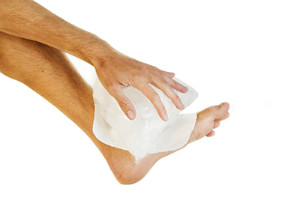 Ankles are an important part of the human body's structure, since they provide the flexibility needed to walk. An ankle sprain occurs when there is a tear in the ligament. These tears can either be mild and result in a mild sprain, or they can be severe and cause a more serious sprain. Ankle sprains can happen to anyone regardless of age, and they can occur while performing any everyday activity. If you are suffering from a mild sprain, it is advised that you follow the RICE method, which stands for Rest, Ice, Elevation, and Compression. Anti-inflammatory medications may also be used to treat minor cases of ankle sprains.
Ankles are an important part of the human body's structure, since they provide the flexibility needed to walk. An ankle sprain occurs when there is a tear in the ligament. These tears can either be mild and result in a mild sprain, or they can be severe and cause a more serious sprain. Ankle sprains can happen to anyone regardless of age, and they can occur while performing any everyday activity. If you are suffering from a mild sprain, it is advised that you follow the RICE method, which stands for Rest, Ice, Elevation, and Compression. Anti-inflammatory medications may also be used to treat minor cases of ankle sprains.
Ankle sprains are common but need immediate attention. If you need your feet checked, contact Dr. Steven Shlonsky from Louisville, Kentucky. Dr. Shlonsky can provide the care you need to keep you pain-free and on your feet.
How Does an Ankle Sprain Occur?
Ankle sprains take place when the ligaments in your ankle are torn or stretched beyond their limits. There are multiple ways that the ankle can become injured, including twisting or rolling over onto your ankle, putting undue stress on it, or causing trauma to the ankle itself.
What Are the Symptoms?
Preventing a Sprain
Treatment of a Sprain
Treatment of a sprain depends on the severity. Many times, people are told to rest and remain off their feet completely, while others are given an air cast. If the sprain is very severe, surgery may be required.
If you have suffered an ankle sprain previously, you may want to consider additional support such as a brace and regular exercises to strengthen the ankle.
If you have any questions please feel free to contact our office located in Louisville, KY . We offer the newest diagnostic and treatment technologies for all your foot and ankle needs.
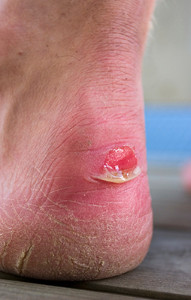 It is no secret that the root cause of blisters is increased friction, but it is important to know what is causing the friction. It has been found that the four main causes of friction on the feet are: shoes, socks, sweat, and restricted foot motion. Shoes that squeeze the toes together have the power to increase the amount of friction between the toes, which may result in blisters. According to a study involving military personnel, low friction insoles have been found to reduce blister development. A similar study has shown that wearing double layer socks prevented the military personnel from getting blisters as well.
It is no secret that the root cause of blisters is increased friction, but it is important to know what is causing the friction. It has been found that the four main causes of friction on the feet are: shoes, socks, sweat, and restricted foot motion. Shoes that squeeze the toes together have the power to increase the amount of friction between the toes, which may result in blisters. According to a study involving military personnel, low friction insoles have been found to reduce blister development. A similar study has shown that wearing double layer socks prevented the military personnel from getting blisters as well.
Blisters are prone to making everyday activities extremely uncomfortable. If your feet are hurting, contact Dr. Steven Shlonsky of Louisville, Kentucky. Dr. Shlonsky can provide the care you need to keep you pain-free and on your feet.
Foot Blisters
Foot blisters develop as a result of constantly wearing tight or ill-fitting footwear. This happens due to the constant rubbing from the shoe, which can often lead to pain.
What Are Foot Blisters?
A foot blister is a small fluid-filled pocket that forms on the upper-most layer of the skin. Blisters are filled with clear fluid and can lead to blood drainage or pus if the area becomes infected.
How Do Blisters Form?
Blisters on the feet are often the result of constant friction of skin and material, usually by shoe rubbing. Walking in sandals, boots, or shoes that don’t fit properly for long periods of time can result in a blister. Having consistent foot moisture and humidity can easily lead to blister formation.
Prevention & Treatment
It is important to properly care for the affected area in order to prevent infection and ease the pain. Do not lance the blister and use a Band-Aid to provide pain relief. Also, be sure to keep your feet dry and wear proper fitting shoes. If you see blood or pus in a blister, seek assistance from a podiatrist.
If you have any questions, please feel free to contact our office located in Louisville, KY . We offer the newest diagnostic and treatment technologies for all your foot care needs.
Louisville Podiatry Office
149 Thierman Ln
Louisville,
KY 40207
Mon: 9:30 AM - 5:30 PM
Tues: 9:30 AM - 5:30 PM
Wed: 9:30 AM - 5:30 PM
Thur: 9:30 AM - 5:30 PM
Fri: 9:30 AM - 5:30 PM